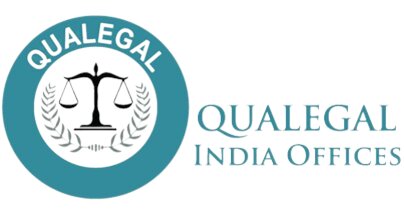Best Corporate Governance Lawyers in New Delhi
Share your needs with us, get contacted by law firms.
Free. Takes 2 min.
List of the best lawyers in New Delhi, India
About Corporate Governance Law in New Delhi, India
Corporate governance refers to the system of rules, practices, and processes by which companies are directed and controlled. In New Delhi, India, corporate governance is not only shaped by law but also by best practices that ensure transparency, accountability, and ethical conduct within businesses. The framework is primarily governed by the Companies Act, 2013, and complemented by Securities and Exchange Board of India (SEBI) regulations for listed entities. As India’s capital city and a major commercial center, New Delhi is home to a wide variety of business entities subject to these complex laws and rules.
Why You May Need a Lawyer
Seeking legal assistance in corporate governance is vital for several reasons. Here are common situations where you may require help:
- Drafting or reviewing company policies, internal bylaws, and codes of conduct to ensure legal compliance
- Managing board and shareholder meetings, including ensuring proper procedures and record keeping
- Dealing with regulatory filings, disclosures, and compliance with statutory requirements under the Companies Act and SEBI Listing Obligations
- Handling disputes among directors, shareholders, or with third parties
- Advising on mergers, acquisitions, restructuring, or other major corporate changes that require legal oversight
- Ensuring the protection of minority shareholders’ rights
- Advising on director duties, potential liabilities, conflict of interest, or regulatory investigations
- Assisting with whistleblower policies and addressing ethical concerns within an organization
A lawyer with expertise in corporate governance helps ensure compliance, mitigate risks, and resolve conflicts efficiently, thereby safeguarding the company’s reputation and operations.
Local Laws Overview
New Delhi businesses are governed by both national laws and locally enforced rules. Some key aspects include:
- The Companies Act, 2013: The foundational law for company incorporation, board structure, roles and responsibilities of directors, audit committees, related party transactions, and investor protection measures.
- SEBI Regulations: Listed companies must comply with the SEBI (Listing Obligations and Disclosure Requirements) Regulations, 2015. These regulations enforce standards for disclosure, governance structures, and investor protections.
- Secretarial Standards: Issued by the Institute of Company Secretaries of India (ICSI), these standards set best practices for board and general meetings, applicable across New Delhi and India.
- Role of the Registrar of Companies (RoC): The RoC, based in Delhi, is responsible for the registration and regulation of companies in the region. Ensuring proper and timely filings with the RoC is crucial for compliance.
- Other Relevant Regulations: This includes laws on prevention of insider trading, anti-corruption, and those related to corporate social responsibility (CSR).
Frequently Asked Questions
What is corporate governance and why is it important?
Corporate governance is the system by which companies are operated and controlled. Good governance ensures transparency, accountability, effective decision-making, and legal compliance, which in turn, protects stakeholder interests and boosts investor confidence.
Who regulates corporate governance in New Delhi?
Corporate governance in New Delhi is regulated by the Ministry of Corporate Affairs through the Companies Act and enforced by the Registrar of Companies. Listed companies must also comply with SEBI regulations.
Are board meetings and shareholder meetings mandatory?
Yes, both board meetings and shareholder meetings are mandatory as per the Companies Act, with prescribed frequencies and record-keeping requirements. Secretarial standards also provide additional procedural guidelines.
What are the duties of company directors under Indian law?
Directors must act in good faith, with due diligence and in the best interest of the company and its stakeholders. They must avoid conflicts of interest and adhere to all statutory and fiduciary duties defined under the Companies Act and other applicable laws.
What happens if my company does not comply with governance requirements?
Non-compliance can lead to penalties, fines, disqualification of directors, or even prosecution depending on the nature and severity of the violation. In extreme cases, the company may face winding up proceedings.
How can a lawyer help my company?
A lawyer can assist in drafting compliant documents, providing legal opinions, advising on regulatory filings, representing the company before authorities, resolving disputes, and ensuring that the company’s governance meets legal standards.
What is the role of minority shareholders in governance?
Minority shareholders have legal rights to protect their interests, including seeking relief against oppression or mismanagement and voting on key decisions. The law provides mechanisms for their protection.
What is a related party transaction and how is it regulated?
Related party transactions involve dealings between the company and its related entities or individuals. Such transactions require disclosure and, in many cases, approval by the board or shareholders to prevent conflicts of interest.
Is corporate social responsibility (CSR) mandatory?
Companies meeting certain criteria under the Companies Act must spend a specified percentage of profits on CSR activities and disclose such spending in their annual reports.
Can foreign-owned companies operate in New Delhi and are they subject to Indian corporate governance laws?
Yes, foreign-owned companies can operate in New Delhi and must adhere to the same Indian laws and governance requirements as domestic companies, subject to certain conditions and sector-specific regulations.
Additional Resources
Several organizations and governmental bodies provide guidance and resources for corporate governance in New Delhi:
- Ministry of Corporate Affairs (MCA)
- Securities and Exchange Board of India (SEBI)
- Registrar of Companies (Delhi and Haryana)
- Institute of Company Secretaries of India (ICSI)
- Federation of Indian Chambers of Commerce and Industry (FICCI)
- Confederation of Indian Industry (CII)
- Delhi State Legal Services Authority (DSLSA)
Next Steps
If you require legal assistance in corporate governance in New Delhi, gather all relevant documents such as your company’s charter documents, recent resolutions, and regulatory filings. Prepare a summary of the issue or the area in which you need advice. You can consult with a corporate lawyer, a law firm, or a professional company secretary. Scheduling an initial consultation will help you understand your legal position, identify compliance gaps, and determine the best course of action. Proactive engagement with a legal expert will help ensure your company runs efficiently and lawfully.
Lawzana helps you find the best lawyers and law firms in New Delhi through a curated and pre-screened list of qualified legal professionals. Our platform offers rankings and detailed profiles of attorneys and law firms, allowing you to compare based on practice areas, including Corporate Governance, experience, and client feedback.
Each profile includes a description of the firm's areas of practice, client reviews, team members and partners, year of establishment, spoken languages, office locations, contact information, social media presence, and any published articles or resources. Most firms on our platform speak English and are experienced in both local and international legal matters.
Get a quote from top-rated law firms in New Delhi, India — quickly, securely, and without unnecessary hassle.
Disclaimer:
The information provided on this page is for general informational purposes only and does not constitute legal advice. While we strive to ensure the accuracy and relevance of the content, legal information may change over time, and interpretations of the law can vary. You should always consult with a qualified legal professional for advice specific to your situation.
We disclaim all liability for actions taken or not taken based on the content of this page. If you believe any information is incorrect or outdated, please contact us, and we will review and update it where appropriate.

















